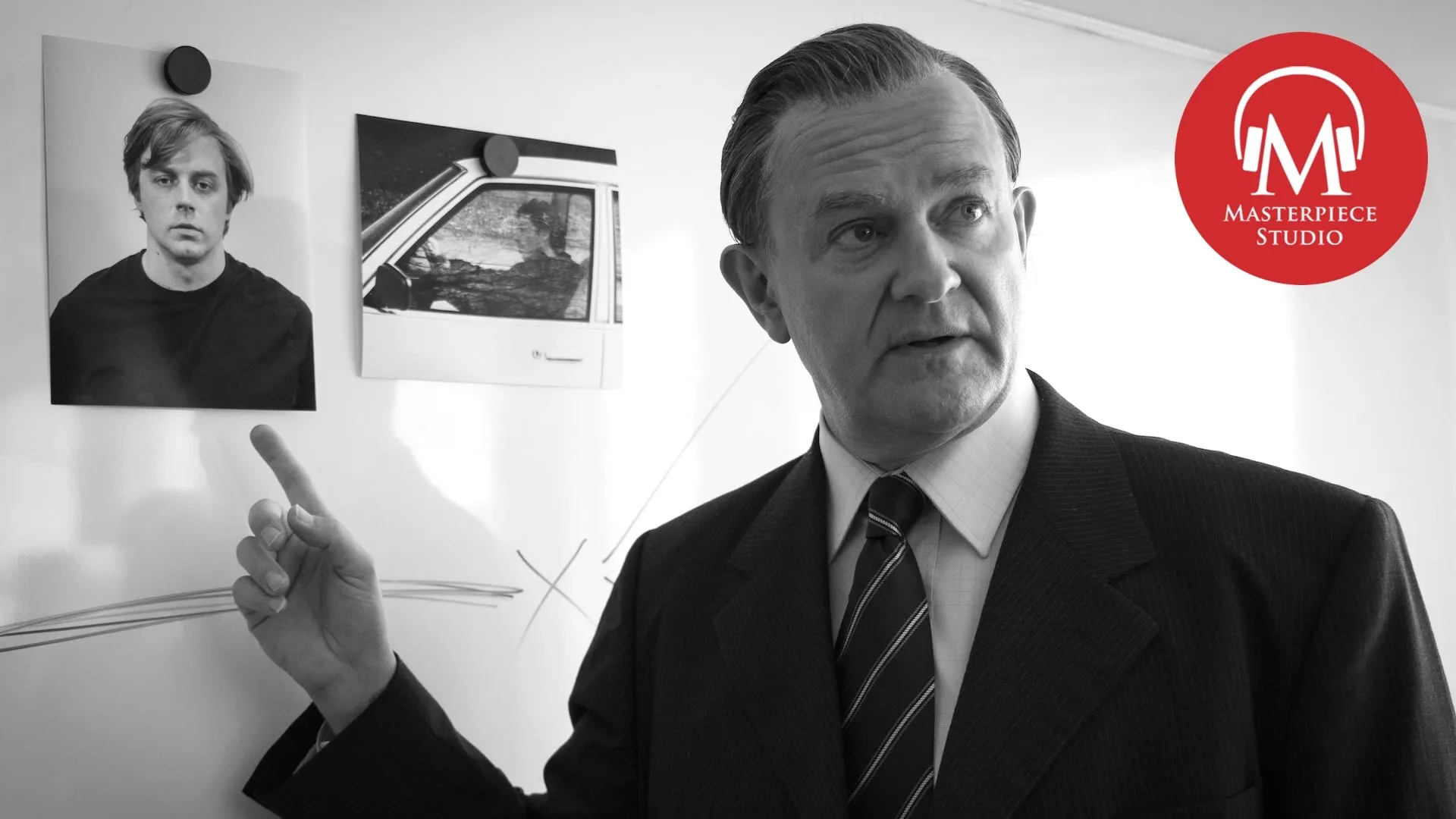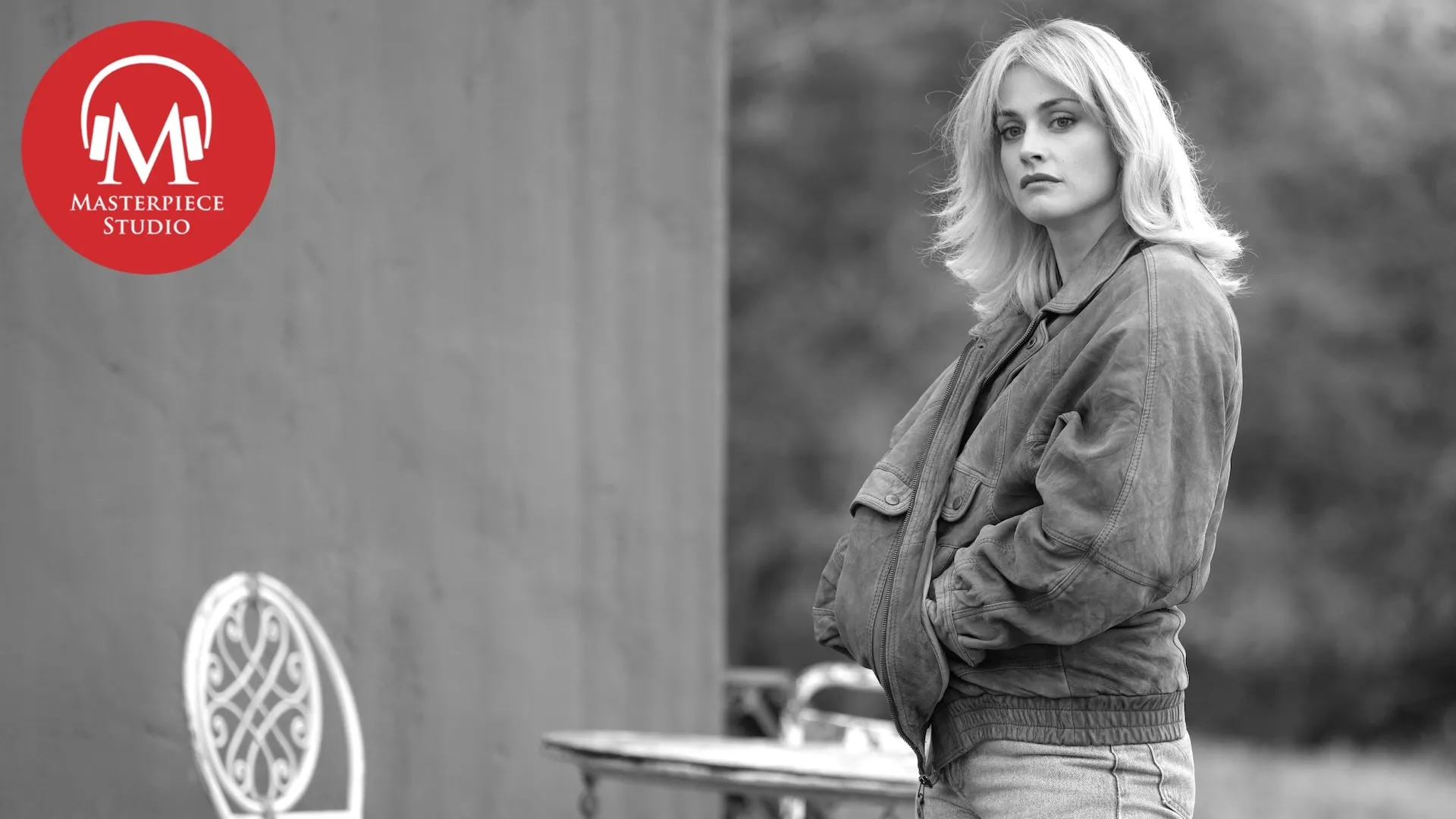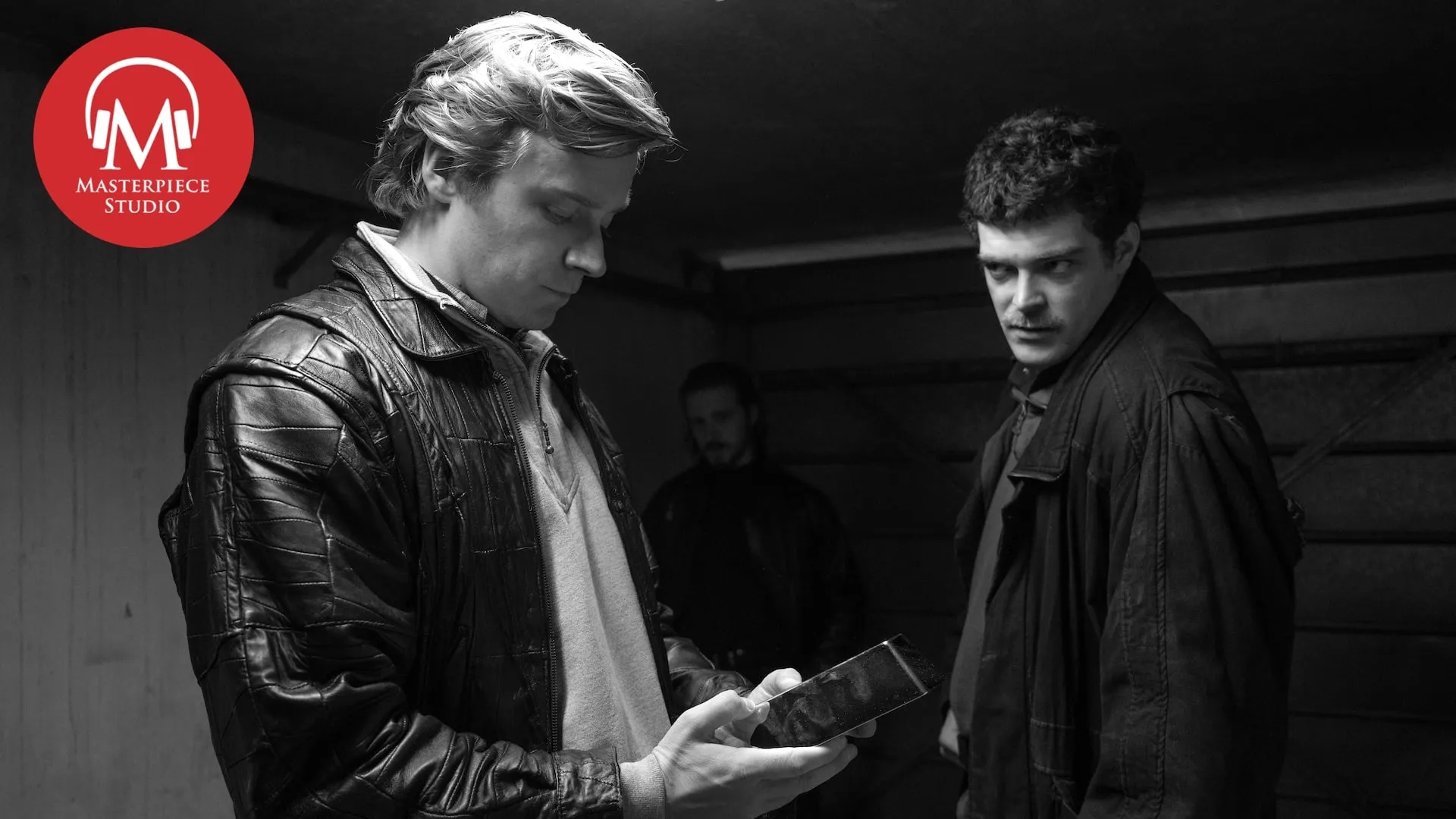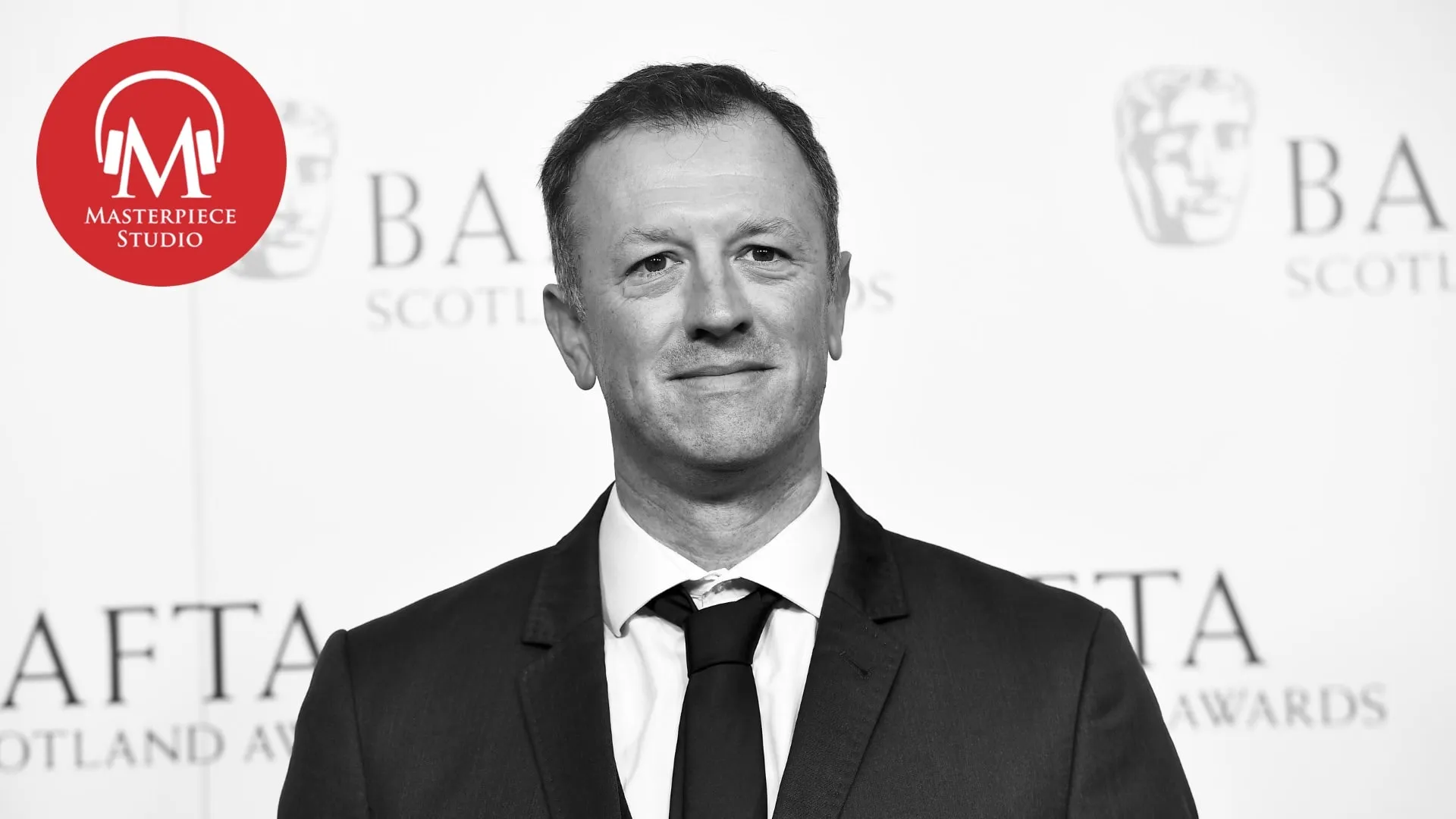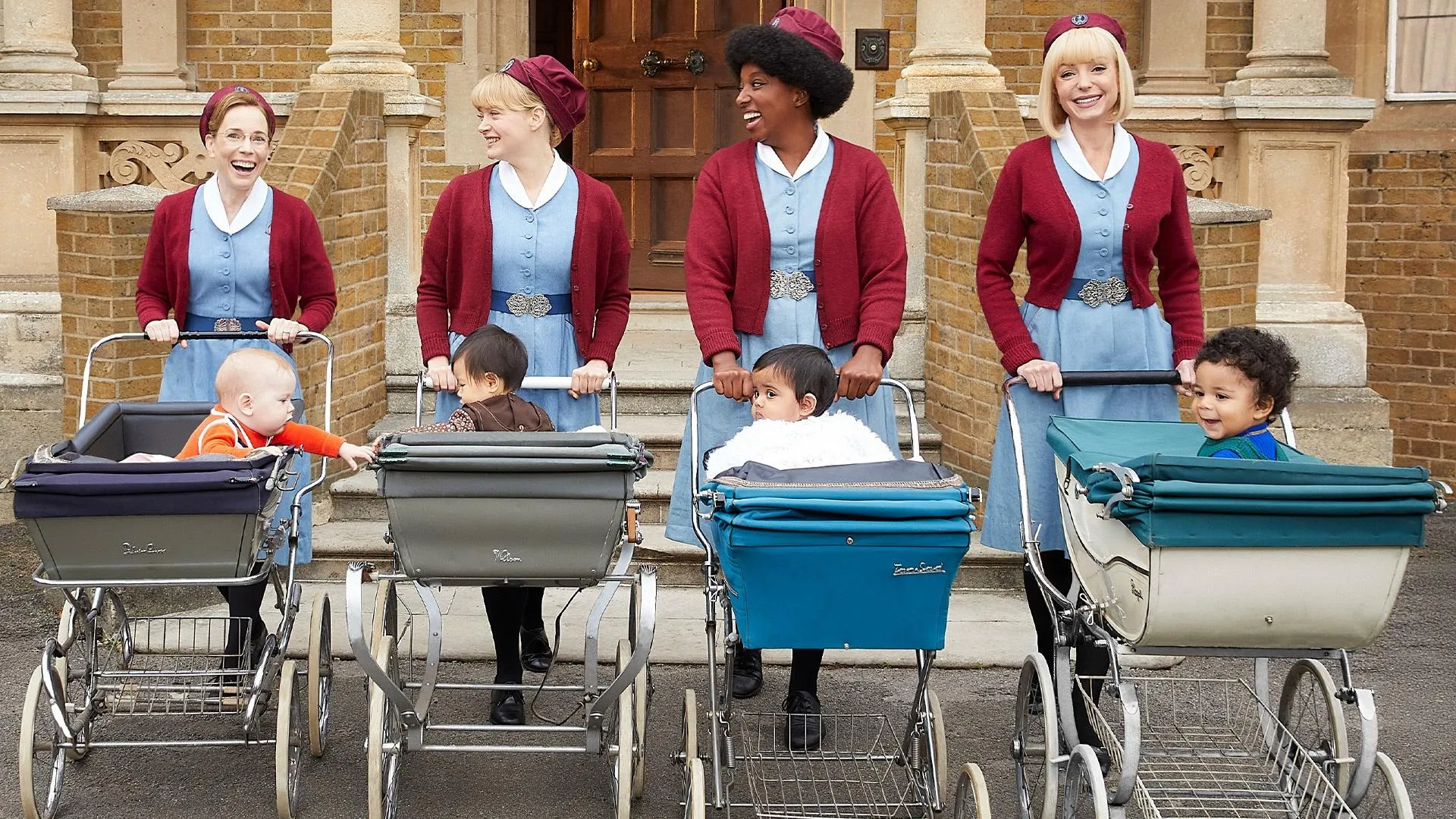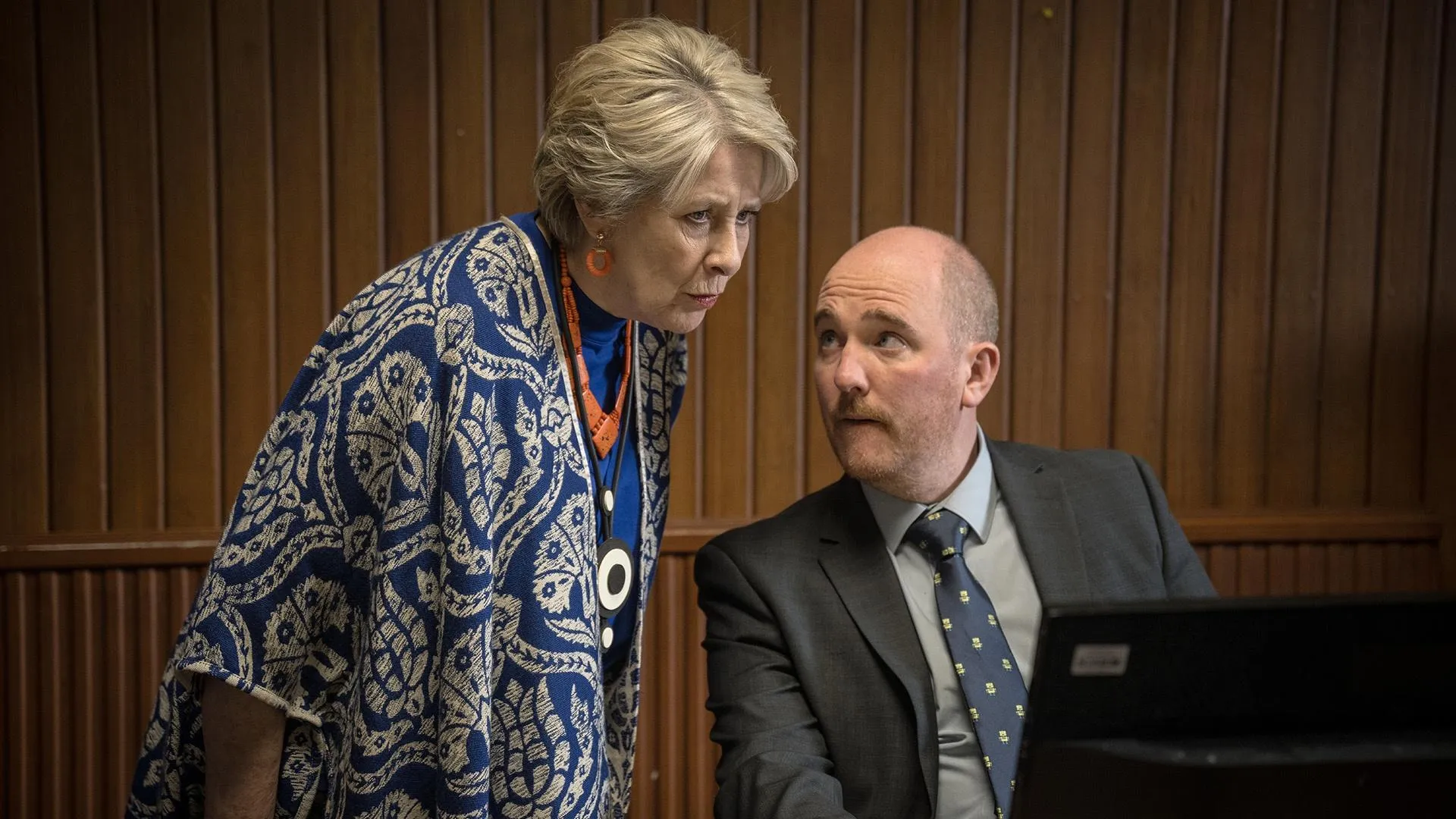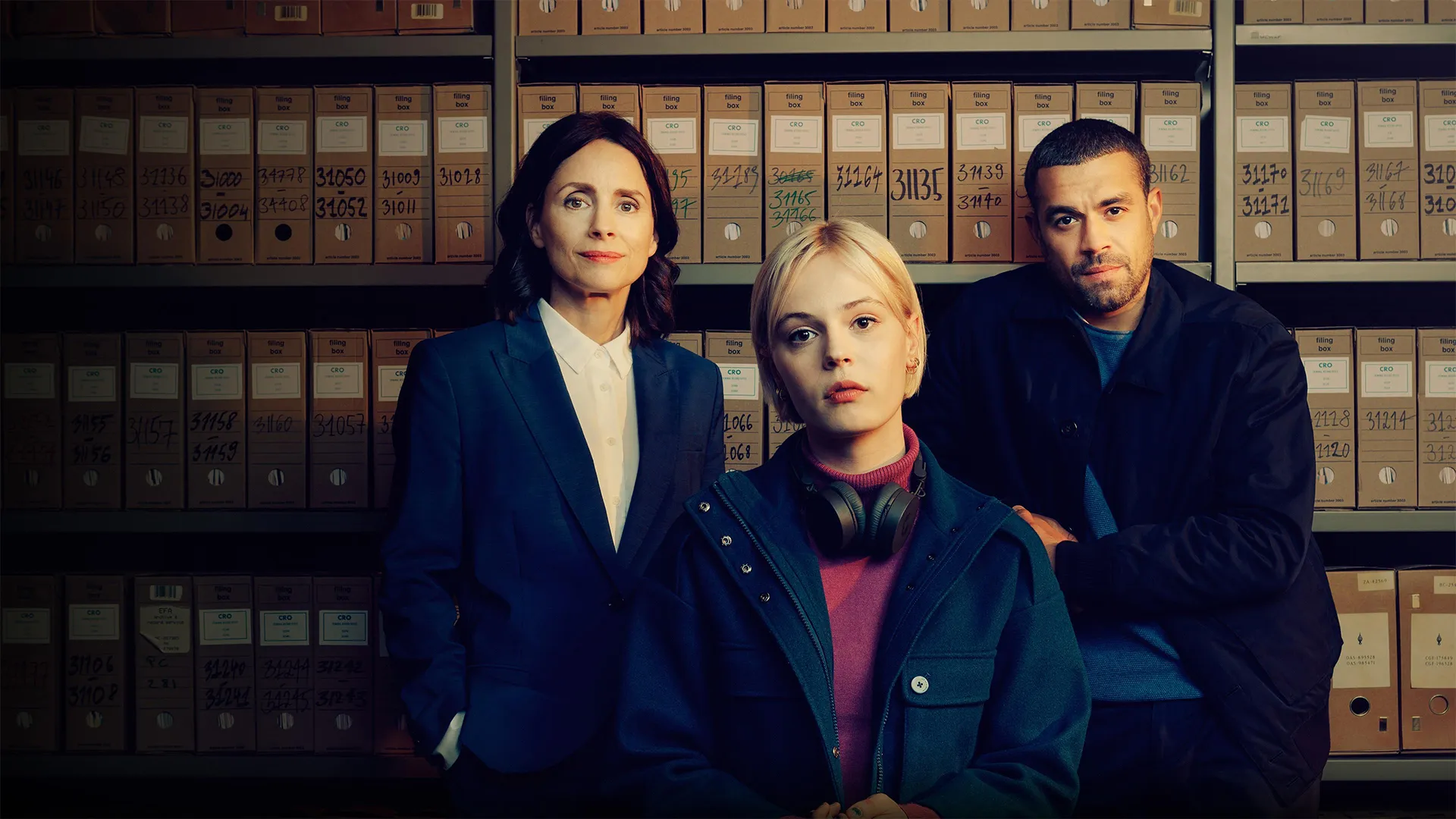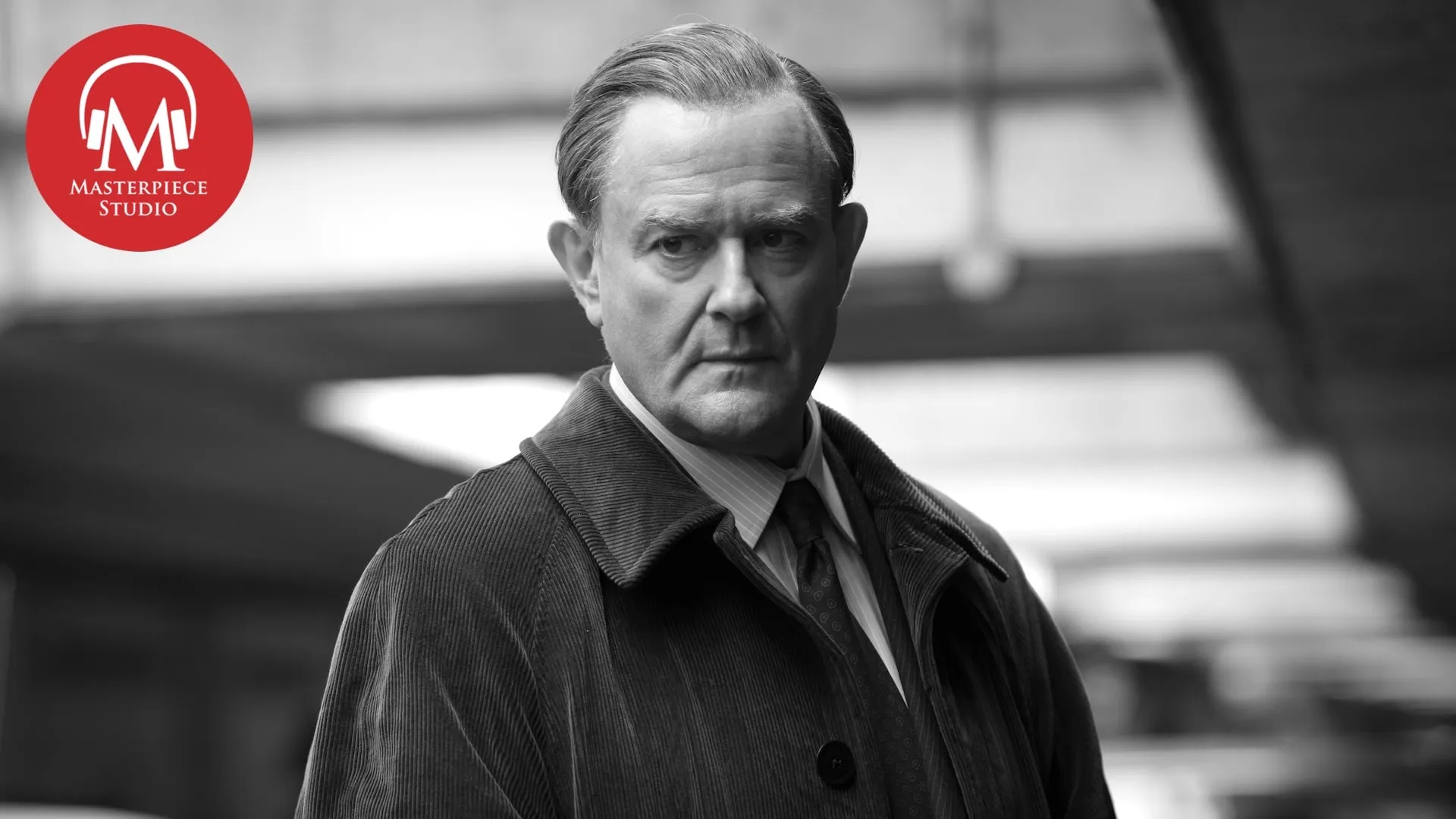
Hugh Bonneville, The Gold Season 1 | MASTERPIECE Studio
Released November 3, 2025 29:21
WARNING: This episode contains spoilers for Season 1, Episode 5 of The Gold.
Actor Hugh Bonneville is a familiar face here at MASTERPIECE, having appeared in Downton Abbey, Miss Austen Regrets, The Cazalets, and more. Today, Hugh joins us to talk about The Gold and playing the ethical, determined, and legendary DCI Brian Boyce. Hugh shares what he took away from meeting the real-life Boyce to inform his stunning performance.
This script has been lightly edited for clarity.
Jace Lacob: I’m Jace Lacob and you’re listening to MASTERPIECE Studio.
DCI Brian Boyce has a first-class track record keeping the streets of London safe and delivering justice. When he sat down to meet with his superiors at the Met, he thought he was getting promoted to the head of counter-terrorism. But they had other plans, and other, bigger needs.
CLIP
Gordon Stewart: The head of counter terrorism has to lead from the back.
Boyce: Not much happens at the back, sir, as you may have noticed.
Cath: We have a solution, the flying squad.
Boyce: No, thank you.
Cath: Hear us out.
Boyce: I did 20 years in London from the beat to criminal intelligence. I’ve nicked every villain in this city once and the good ones twice.
Gordon Stewart: That’s why you’re here.
Boyce was assigned the largest case at the time, the Brink’s-Mat robbery. He quickly became a man on a mission: a mission not to only find the three tons of stolen Brink’s-Mat gold, but to nick the surprising criminals tied up with it and beat the systems that keep these types of people protected. But to get to those people, Boyce must first go through the type of criminal he’s interrogated countless times.
CLIP
Boyce: I didn't want this job, Robert. But you don't turn down a promotion, and apparently this is a promotion. I didn't want this job because of people like you. I've seen you before, a hundred times. And it becomes slightly dispiriting sitting in rooms like this with people like you — stupid people, Robert. Stupid, greedy people who get promised the world and always end up the same, skint, scared, and looking at me.
Boyce is a soldier at heart. He thrives on being on the front lines in the center of the action, never backing down from making an arrest, grilling suspects in the interview room, and even leaving Blighty behind to travel internationally and seek information abroad.
CLIP
Osborne: Paying instructions from Noye through Savage's deposits to Switzerland. To prove conspiracy against any of them, we need to know who controls the Swiss account and prove the connections all the way back. But if you don't have who controls the Swiss account, then you don't have conspiracy.
Boyce: Then I'll go to Switzerland and ask who controls the account.
Osborne: Right, yeah. I mean, whilst I obviously admire your panache…
Today, The Gold star Hugh Bonneville joins us to talk about playing the ethical, determined, and legendary DCI Brian Boyce, and what he took away from meeting the real-life Boyce to inform his stunning performance.
Jace Lacob: And this week we are joined by The Gold star, Hugh Bonneville. Welcome.
Hugh Bonneville: Hey, Jace, how are you?
Jace Lacob: I'm great. How are you, Hugh?
Hugh Bonneville: Very nice to talk to you again. I'm fine. In a slightly damp London, but all is good.
Jace Lacob: So, Brian Boyce has three rules: “No overtime, no drinking at lunchtime, and no Freemasonry.” He makes Tony Brightwell pay an eighty pence bar tab so there's no hint of impropriety. In preparing to play Boyce in The Gold, you met the real-life Brian Boyce over lunch. How did that conversation inform your take on the character?
Hugh Bonneville: Well, as those lines indicate, he's a man of absolute principle. So Brian Boyce came from the army originally, and then he joined the police. And if you cut him open like a stick of rock, you'd see integrity or cut through right in the middle, that's his watchword. So he was adamant that there was going to be no hint of impropriety in his squad.
So meeting him, a man in his eighties now, very fit man, very sharp and very wise, it was a great privilege to meet him and get his take on the world that he inhabited for so long. But also to get a feel for the man because, well, I wasn't trying to do an impression of him, I wanted to know how he ticked. And I asked him particularly about losing his temper, how he led the team. Because often you see in cop shows, you see the boss guy berating the junior officer and saying, “Get off the team, you're suspended!” or whatever it might be. It struck me just from the initial meeting that he was not a man who operated like that. And you can see clips of him on YouTube in various interviews about this whole case. And indeed he wasn't. He was a man of a much more regulated pulse, if you like, a much calmer man. And as I say, he was adamant that there was going to be no whiff of corruption in this investigation.
And also, there was the tragic real life occurrence of a policeman who was on surveillance. He's on surveillance, and he is killed by one of the antagonists. It was on Brian Boyce's watch, and he felt massively responsible for that. And it could, I think, in lesser hands have led to the implosion of his team. But he said, I take full responsibility for this tragedy. It will stay with me forever. And we need to get on with the job. And Brian then, he told me in person that when this happened and he felt this massive crush of responsibility on his shoulders, he got a phone call from his former boss, who himself had been involved in a major police story in the 1960s. It was called the Great Train Robbery.
And this particular copper had been at the center of it and was at times criticized for not leading a very good investigation. Anyway, he was the first person to call Brian Boyce, Brian told me, to say chin up, you'll get through this and it's important to lead by example and keep the faith, so to speak. So there were these heartening stories of which I really took with me on set, as it were. This man was a properly decent man, to the extent also that after he'd retired, well after this story had finished and he'd retired, there was another case of a tragic killing of a young lad in South East London.
Jace Lacob: The Stephen Lawrence investigation.
Hugh Bonneville: Correct.
Jace Lacob: The Macpherson probe. Yeah.
Hugh Bonneville: Exactly. And there was a lot of implication that the police were being soft on the investigation and not following up on the leads they had, etcetera. And Brian Boyce, in retirement, volunteered to investigate the police because again, he couldn't bear the fact that the police force that he felt so loyal to was being tainted in any way, shape or form.
So that gives you a very long answer to a very short question about the nature of the man and meeting him and the impact it had on me. So, I really went into the filming equipped. And I then had the pleasure of having lunch with him after the filming, after the show had been out. And he said, look, I know the story was fictionalized, and in order to compress time and events and make sense of it for a dramatic purpose, he said, but you did right by us and thank you. So, that was very reassuring.
Jace Lacob: Bless. I mean, this is the era of The Sweeney, but Boyce doesn't have that kind of TV copper swagger, and he's calm and collected. He's authoritative, but not authoritarian. Jennings and Brightwell bluff their way onto the task force. Boyce comes to respect them. How would you describe his feelings for them, particularly after Sierra Leone and his duty of care towards these two in particular?
Hugh Bonneville: Yes. Well, as you say, he's not a Sweeney-type swaggerer. And in fact, he was for a short time in charge of the Flying Squad, who in that era were known for wearing their leather jackets in the pub at lunchtime and having three or four pints of beer and then maybe doing an afternoon sleuthing and kicking down doors and arresting bad guys. And he came in and said, right, no more drinking at lunchtime, which you quoted earlier, and we're all going for a run at lunchtime. And of course, the backlash was awful. The Sweeney guys were going, who the heck is this guy who's coming in and turning our house upside down?
Anyway, only after a few weeks of that was he then seconded onto this unique task force to investigate the Brink's-Mat robbery. And into that world came Tony Brightwell, who was a real person, and then this other character of Jennings who is frankly an amalgamation of many different aspects of the force at the time. The most significant thing being there weren't many women who were at that level of being a detective. And you can again see video footage on YouTube of the policewomen of that era. It was a very different chauvinistic world where women on the force were just sort of sidelined and not expected to be in frontline jobs. So that is a fictionalization, but it's a valid one because women in the police were on the rise.
And so he does have this sort of paternalistic tone towards both of them. And they become this double act who are working under his aegis, under Boise's aegis and setting about trying to trace the gold and the money. So it's quite an avuncular relationship that develops in a grudging respect. So the development of that relationship, and it goes on into season two, which I won't spoil for now, but it's a very healthy and I think, rather mutually respectful relationship.
Jace Lacob: You mentioned the murder of DC John Fordham, who is stabbed to death by Kenneth Noye during surveillance gone wrong in Episode Four. Noye, then under arrest for Fordham's murder, talks to Boyce in his cell and attempts to bribe him, offering him money for his retirement.
CLIP
Boyce: We're looking for the bunkers.
Noye: Well, if you find them, you let me know.
Boyce: We have extensive surveillance…
Noye: Spain. It'd be nice, wouldn't it? Yeah. Retirement to Spain. And a few quid there waiting for you.
Boyce: Confess to the murder and tell me where the gold is. That's all the power you've got left.
Noye: Well, I guess we'll find out soon enough, Mr Boyce, what power I've got left.
Boyce: In the war, there were some nights in London when all you could hear was whistling. My old man was a gunner in Hyde Park trying to protect the king with rockets while my mum was under the kitchen table in Maple Street, trying to protect me with Ave Marias. And on those nights, when all you could hear was whistling, she’d turn to me and say, "You only need to worry about the one that's coming for you." Tonight, when you're in that cell, in the dark, I want you to listen for the whistling. And I want you to know that they're all coming for you.
Jace Lacob: What was it like shooting this jail cell scene with Jack Lowden?
Hugh Bonneville: Well, Jack Lowden is, I think, one of the foremost actors of his generation. A bit younger than me, but he's wonderful. Obviously your listeners will know him from Slow Horses, particularly. He's a fantastic actor. And bringing a sort of, if you like, a charming menace to the role of Kenneth Noye. He's brilliant. And that was a particularly significant scene. It's brilliant writing. It's quite chilling.
And the suppressed anger in Boyce because, in another version, in another type of show, he’d beat the crap out of him in the police cell for the death of one of his men. But instead he restrains himself and just says, the justice is coming for you at some point. And then and then we see how that unfolds in the following episodes. It's an intriguing story, and I think it's a very forceful, very powerful scene that.
Jace Lacob: Throughout The Gold, Neil Forsyth gives Boyce these gorgeous speeches which you deliver with such a precise sense of rectitude. What did you make of Neil’s scripts, particularly what he wrote for Boyce's dialogue?
Hugh Bonneville: I think Neil's a fantastic writer. He comes from the world of investigative journalism. So, the depth of research is extraordinary, and the complexity of the story is really quite mind boggling. And it takes a forensic mind to be able to unpack it all and then put it into dramatic form that's digestible. Because on paper, it's such a web of complex narratives. And he finds various devices with which to explain the story. The best one, I think the most useful one, is the character played by Daniel Ings, who comes from the tax world, who gets rather excited about being part of the police team. But he's really just a number cruncher, and he's trying to find VAT fraud and that sort of thing, which is a tax on goods. That's his background. Or, Customs and Excise rather. And he sees himself as this sort of Starsky & Hutch type figure and it's quite comedic. But he is an outsider to the world of the police investigation. And so he is a very good device, if you like, for explaining frankly to the audience how these events are connected by a string of different moments and different links in the chain. And Neil's research is then leavened into this accessible narrative form.
So on top of that, you've got great character notes. Particularly there's a moment where Boyce is trying to trace the money that's gone abroad, and ends up finding a kindred spirit in a Swiss policeman. And they discover that they both have military experience. And there's a very powerful speech which Boyce delivers about when he was in Cyprus on active duty in the Army.
CLIP
Boyce: The EOKA moved at night. So we went looking for them. I was leading a patrol at dawn when all hell broke loose. We hit back, rapid-fire, up into the trees. We cleared them out and went to see the damage. I saw his feet first. He was wearing these red leather shoes. He'd taken a bullet through the heart. In his hands, he had a 12-volt battery for the mines. He was gonna blow us up. We shot him first. But it was… He was in uniform. But these shoes…they were handmade. They weren't made for fighting. They were childlike. Because that's what he was. That's what I was. Teenagers. Boys. That's what I think about when I think about war. I think about a boy in Cyprus and his red leather shoes.
Hugh Bonneville: And it's a story that Brian Boyce had actually told to Neil about his own experience. And it's very powerful. And narratively, it brings these two policemen from different worlds together and opens up a corridor of information, which then leads to an arrest.
He writes very simple but very evocative speeches, often for these characters who do perhaps in a non-naturalistic way, do then talk about their own situations in life, particularly in season one. You've got characters who are aspiring to break out of their social mold. You've got a character like Boyce reflecting on his past and his present and what's happened to him and his team. And it's very much about the changing of the social guard, if you like, in Thatcher's Britain of the 1980s, where there was a phrase called “loads of money”, which is, get money and you can change your, you know, it was happening on Wall Street as well, and in America, too, this era of rabid sort of capitalist, go for broke, get cash however you can, and you will change your life. A new meritocracy is in town.
And so that is really the backdrop of this dialogue and Neil's approach to the text, which was very rich. And of course, the soundtrack as well, I thought really lifted it and took you back to an era of the shifting sands of what makes society, certainly in Britain, all through this gold bullion robbery.
MIDROLL
Jace Lacob: We’re back with The Gold star, Hugh Bonneville. So you mentioned Episode Five, because that is my favorite episode. And you mentioned my favorite scene, I think, across all of Series One, which is the exchange between Boyce and Captain Siegrist, who is initially comparing him to Don Quixote. He's forever tilting at windmills. He's in Switzerland following the gold chain.
CLIP
Siegrist: “Don Quixote.”
Boyce: Sorry?
Siegrist: You. Coming here alone to ask me for this information. The madness of it makes me think of “Don Quixote.”
Boyce: I came alone because I wanted to speak to a policeman, not to a politician.
Siegrist: I understand. But the sovereign laws of the nation of Switzerland state that our banking system is to be protected by secrecy, to which any law, national or foreign, are deemed inferior.
Boyce: Have you ever lost a man? Because I lost a man working on this. And that is why I will travel anywhere in the world to seek help, to seek justice, to be called mad. I will do anything, because I lost a man.
Jace Lacob: And then, yes, he does speak about these childlike, handmade shoes of the teenager he's either killed or saw killed in the war. And he says, “that's what I think about when I think about war. I think about a boy in Cyprus and his red leather shoes.” That particular line has haunted me in the years since I first saw Series One of the show. How did you approach the quiet intensity and emotional honesty of these scenes with Siegrist, and what sort of direction did Lawrence Gough give you about letting these moments breathe, these moments of personal loss or connection, just breathe?
Hugh Bonneville: Well, I think when you've got writing as powerful as that, it almost directs itself. And Lawrence was particularly good at letting, as you say, letting it breathe. And then Ian who played Siegrist, the Swiss guy, he was absolutely fantastic. And so you just felt these two men who'd been through a lot of life experience. And the way the camera worked in that scene, I remember it was actually quite a long shot initially, and then a slow push in, I think. And it just let the language do it. And having then also met Brian Boyce, the emotion is contained and let the audience feel it really.
I think it was handled extremely well, both by Neil in terms of the writing, and by Lawrence in terms of the direction and just encouraging one just let the words do the work. You don't need to push anything. It's just all there. Clearly it creeps up on Boyce and therefore unlocks Captain Siegrist to see a fellow combatant, and who recognizes that experience in his own way and unlock a channel of communication. So I think it's a brilliant narrative device. I'm glad it stood out for you, because it certainly did for me in the script. I thought it was a superb piece of dramatisation, actually.
Jace Lacob: I think this is the episode where the entire narrative turns, the series becomes less about the heist itself and more about its systemic and emotional consequences. Extradition requests are denied. Banking secrecy laws block evidence collection. Do you see the true villain being these deeply entrenched systems that are designed to protect wealth, legal or otherwise?
Hugh Bonneville: There were certainly inadequacies in the system. I mean, what's staggering is that the whole sequence of when John Palmer, the gold smelter, or one of his colleagues, I can’t remember if it is him or his colleague, who's goes to the bank every week and says, this is from a business that was turning over, let's say, I don't know, £10,000 a month, suddenly turning over £100,000 a week and saying, next week I want to take out £500,000 in cash please. And the bank teller having to go to her boss, saying there's something odd here and saying, well, we can't do anything about it, it's his money. We've got to give it to him.
And so none of the checks and balances that happen now were around then. And in fact, it was Brink's-Mat that contributed to having the law changed. So now if you're taking out big amounts of money, you have to prove where it's coming from and where it's going to, and for what reason. And it simply wasn't the case then. And where they got lucky was because Palmer insisted, I think it was Palmer or one of his associates, insisted on having crisp £50 notes, which in those days were quite rare. To have fifty pound notes wasn't at all common. And so these had to be specially commissioned by the Bank of England.
So therefore, all these fresh banknotes arrived with the serial number starting, I think it's A24. And so, once the police got wind of the fact that these vast amounts of money were being taken out by one guy in Bristol, near Bristol, with A24, they could then start making investigations into anywhere that an A24 £50 banknote was being used and that tripped them up. It was actually the avarice or whatever you want to call it, the hubris of saying, I want to flash my wealth with £50 notes that led to certainly an element of the investigation becoming successful.
But also, as I say, that whole laundering of money, that got changed. So the institution, whether it had been consciously designed to protect those who were trying to wash a lot of money around, whether it was explicitly designed that way, but it certainly led to the barrier going up and saying, hang on, money laundering needs to be taken seriously now by the establishment and by the legal system.
Jace Lacob: You mentioned hubris. There is a lot of hubris or arrogance at play from the criminals. John Palmer goes so far as to name his new timeshare property in Tenerife, “The City of Gold”. Kathleen McAvoy names her two dogs Brinks and Mat. What does Boyce make of the sheer hubris on the part of these criminals? Does it further fuel his determination to seek justice?
Hugh Bonneville: I think so. And from the moment that John Fordham's life is taken, there's a new energy and a darker energy in Boyce's investigation. And yes, a new determination, really. And I think the bottom line is crime doesn't pay, or it seems to pay, but then there is always a repercussion. And that becomes particularly potent, dare I say, in Season Two, where the ripple effect of the laundered money goes further and further outwards and overseas. The phrase, “You can run but you can't hide,” it will catch up with you. And so that's certainly true in certain cases in Season One, but it's wonderfully held up in the character of John Palmer, who appears to really flout the phrase that crime doesn't pay. It clearly does for him, certainly initially. But it's worth staying for Season Two to see what happens next.
Jace Lacob: You touched on this earlier. We see the shifting sands of Britain at play within The Gold; a post-war England that's defined by service and legacy, manufacturing, and that sort of blitz spirit giving way to a new England of the 1980s, one that's defined by legal loopholes, offshore banking, corruption. Should we view The Gold as a condemnation of the Thatcher era, where influence and power was created not through character but through capital?
Hugh Bonneville: I mean, this is a great symbol of that rise of financial expediency or the smash and grab principles that I suppose ultimately the deregulation of capital that led ultimately to the crash of 2008. It's a long slow rise as capitalism became a free for all, really, and the effect that had; Thatcher’s breaking of the unions, the free market economy, the sort of breaking down of social responsibility I suppose, or social protection. Almost a Wild West feeling in terms of economic growth. And a lot of people did very well out of it and a lot of people suffered.
But I think so. I think that Brink's-Mat is on the one hand, you could say it's the sort of the Robin Hood story, stealing the rich to give to the poor, but the poor didn't benefit. Certainly the rise of this depressed area of East London, the Docklands, did benefit. I think the lawyer who is played by Dominic Cooper, who is an amalgam of various characters, I believe. But anyway, in the story and I think in reality, over 120 companies were set up to launder the money in London.
And so a lot of the new building in the East End of London owes its rise to the Brink's-Mat laundered money. And South East London as well, part of that of Rotherhithe, where the robbers were from was rejuvenated through the splash of cash that came their way. And to think that the gold was then ultimately, some of it bought back by the very company that had lost it, because it circulated in the system, albeit smelted and made less pure. And the tagline was that if you're wearing a piece of gold now, it's probably got some Brink's-Mat in it. I mean, it's strange how the effect of it has rippled down the decades.
Jace Lacob: By the time that this interview is released, Downton Abbey: The Grand Finale will have been released for a few weeks. While you've previously had to say goodbye to Robert Lord Grantham before, how does it feel to have a sense of finality to Downton and to the character of Robert, to finally, finally say goodbye in a way?
Hugh Bonneville: Yeah, I think you and I talked 10 years ago about the show coming to an end. And since then we've done three movies. So it always seems to be a case of never say never or never say farewell. But I think the clue is in the title, this is called Downton Abbey: The Grand Finale. I think I think this really is it. And it feels like it, it feels like a really appropriate ending to what's been an amazing 15 years with this character and these stories. And I think if you've followed the show, it'll feel like a very appropriate and poignant, but as I say, appropriate ending to our story.
Jace Lacob: I will say my son, who grew up watching Paddington, he's 11 now. We were at the movie theater seeing another movie, and there was a standee for Downton Abbey. And he stopped in his tracks very indignantly and turned to me and said, you never told me Mr. Brown was in Downton Abbey! Because that is how he knows you. And he was very indignant. You’ve said without Downton, I don't think I would have met a small bear from Peru, or worked with George Clooney or been invited to the White House. With the conclusion of the saga, more than a decade and a half of your life, what do you most take away from Downton?
Hugh Bonneville: Really the people, the team, they did become a second family over the years. And we've been through a lot together. We really have, you know, births, marriages, deaths, divorces, you name it. When you've got a team of over 100 people regularly working together, that's bound to happen.
So I think the friendships, and the fact that it's a show that has resonated around the world has meant so much to us as a group, as well as individually. It's a remarkable thing. It's a once in a lifetime experience. I won't have it again, I'm sure, but it's been something I'm extremely proud of. And yes, the opportunities that it afforded us and the experiences I've had that we've had over the years are really one for the memory bank. And I'm enormously proud and fond and grateful for the experience.
Jace Lacob: Thank you so very much for joining us today.
Hugh Bonneville: Thanks Jace. Really good to talk to you. Take care.
Next time, we return to France as Maigret returns to his hometown to solve a case rooted in his childhood and family.
CLIP
Gautier: Again, I’m sorry your visit was so sad. Have a safe trip back to Paris.
Maigret: I’m not going back to Paris. I’m taking this.
Gautier: What? It belongs to the estate.
Maigret: It belongs to my father. He bought it as a gift for the Countess’s 21st birthday. This was his copy.
Gautier: Wh – er, Maigret?
Could this case provide the missing piece for Maigret to finally put his past behind him? Join us next week to find out as we sit down with Maigret himself, actor Ben Wainwright.
The Gold Podcasts
4 More Podcasts
MASTERPIECE Newsletter
Sign up to get the latest news on your favorite dramas and mysteries, as well as exclusive content, video, sweepstakes and more.
